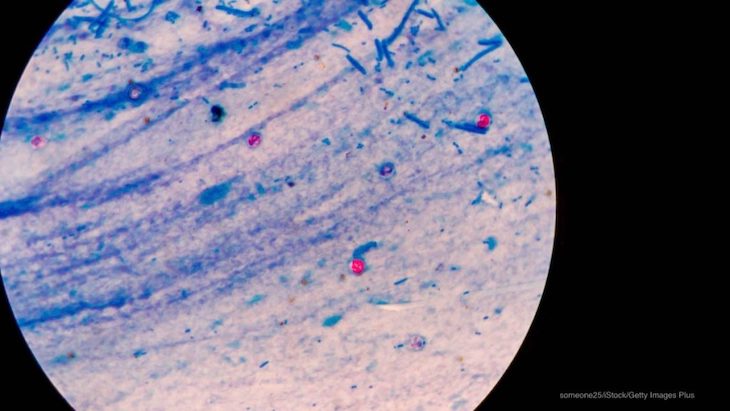Cryptosporidium is a microscopic parasite that causes a diarrheal illness in humans. The parasite is hardy and has and outer shell that lets it survive in the environment for a long time. It is resistant to chlorine disinfection. It’s most commonly spread by contaminated drinking water and recreational water. It is the leading cause of waterborne disease among humans in the United States. How do you know you have a Cryptosporidium infection?

The most common symptom of a cryptosporidium infection is watery diarrhea. Other symptoms can include stomach cramps or pain, nausea, vomiting, dehydration, fever, and weight loss. These symptoms usually appear two to 10 days after exposure to the parasite. However, some people who are infected will not have any symptoms.
People are usually sick for one to two weeks, but symptoms can recur. The symptoms can come and go up to 30 days. People with weakened immune systems, such as cancer and HIV patients, can develop chronic, serious, and sometimes fatal illness with this type of infection.
This illness is diagnosed by examination of stool samples. It can be difficult to detect this parasite, so multiple stool samples over a period of several days may be needed. Molecular methods such as polymerase chain reaction are often used to reference diagnostic label. Those sets can identify Cryptosporidium at the species level. These tests are not routinely conducted at doctor’s offices, so physicians must specifically request testing.
Most people who have healthy immune systems can recover without any treatment. Patients should be monitored for dedication, especially people in poor health and young children.
You can contact this parasite in several ways. Swallowing recreational or drinking water is the most common way. Uncooked food can be contaminated with the parasite. And if you touch your mouth with contaminated hands, after changing a diaper or caring for a sick person or animal, you can get sick.
The best way to prevent a cryptosporidium infection is to practice good hand hygiene. Alcohol based hand sanitizers are not effective against Cryptosporidium. Wash your hands thoroughly with soap and water after going to the bathroom, before eating and preparing food, and after caring for someone who is sick, especially with a diarrheal illness. Children who have diarrhea should not attend school. Do not swim if you have diarrhea, and do not swallow the water when swimming. Don’t consume unpasteurized milk or apple juice. Finally, don’t drink untreated water from lakes rivers, springs, ponds, creeks, streams, or shallow wells.




